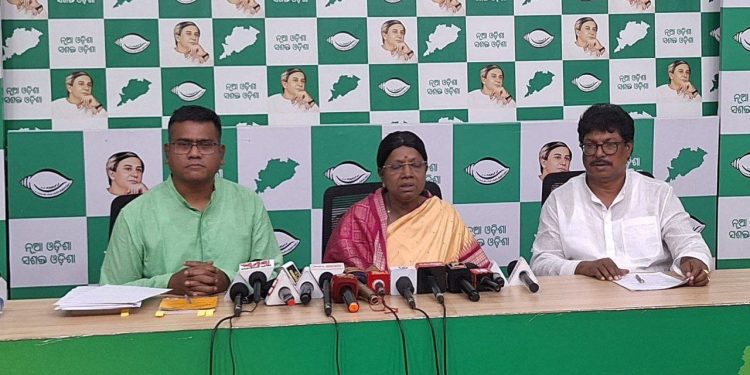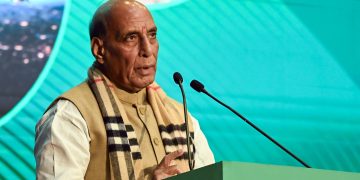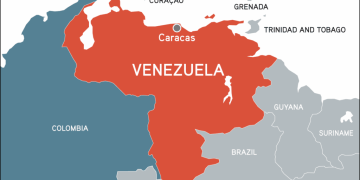Bhubaneswar: The Opposition BJD Wednesday alleged that the BJP government in Odisha was “anti-tribal and anti-dalit” and demanded immediate restoration of the rules under which officers of the rank of DSP probe cases of atrocities against scheduled tribes and scheduled caste people.
Addressing a press conference here, BJD leader Pramila Mallick, former minister and party vice president, Sudam Marndi, and Media Coordinator Priyabrata Majhi launched scathing attacks on the Mohan Charan Majhi-led BJP government and announced that the regional outfit will hit the streets if the government does not amend its actions.
Under the SC & ST (Prevention of Atrocities) Act, it was mandated that only officers of the rank of Deputy Superintendent of Police (DSP) could investigate cases of atrocities against ST and SC people, pointed out Mallik, adding that the BJP government in Odisha has now permitted inspectors and sub-inspectors to carry out such investigations.
“It shows that the BJP government is anti-tribal and anti-Dalit,” Mallik said.
Marndi, who hails from a tribal community, pointed out that around 40 per cent of the state’s population belongs to SC/ST communities. “Allowing inspector and SI rank officers to probe into atrocities cases is a calculated attack against their rights. The BJD strongly condemns these steps and demands immediate withdrawal of the new rules,” he said.
Priyabrata Majhi stated that, as per Rule 7 of the SC & ST (Prevention of Atrocities) Rules, 1995, it is clearly mandated that only a police officer of the rank of DSP should investigate cases of atrocities under this Act. These rules were framed by the Central Government by exercising the powers conferred under Section 23(1) of the Scheduled Castes and the Scheduled Tribes (Prevention of Atrocities) Act, 1989 (Act No. 33 of 1989), he said.
“However, August 30, 2025, the Odisha government issued an order altering this rule and allowing inspectors and sub-inspectors to conduct such investigations. It is against the law for the state government to unilaterally amend or override a rule that was formulated and enforced by the Central government with the approval of Parliament,” Majhi said.
“If the state wanted to delegate investigation to senior officers above the rank of DSP, it would still have been within legal bounds. But by downgrading the authority to lower-ranking officers, the state government is effectively denying justice to SC and ST victims of atrocities,” Majhi said.
Mallik said that for the past five months, the ‘Anwesha’ scheme, which was effectively implemented during the BJD government for the benefit of tribal students, has come to a standstill due to non-disbursement of grants.
Mallick stated that across 17 districts of the state, 98 hostels in 163 public schools had tribal students benefiting from the Anwesha scheme. Launched in 2015-16 by former Chief Minister Naveen Patnaik, the scheme helped over 22,340 tribal students receive quality English-medium education. Although five months have passed since the beginning of the academic year, no grants have been released for tribal students for 2024-25, she said.
Under the Anwesha scheme, the state government was covering school fees, uniforms, books, hostel, and healthcare expenses. “For each student, the government used to spend Rs 20,000 annually on school fees, Rs 18,000 on books, transport, and uniforms, and Rs 15,000 on food and accommodation, totalling Rs 53,000 per student per year,” Mallik said.
Mallick said that, in previous years, grants were released at the very start of the academic session. But this year, even though it is already September, no grants have been disbursed.
“In areas like Sundergarh and Rourkela, around 1,800 tribal students are currently in hostels. Earlier, if there was a delay in grant release, schools managed using leftover funds from the previous year. However, this year the government has even taken back those leftover funds, creating a crisis in the hostels. Due to the lack of funds, many students have left the hostels,” she alleged.
PTI






































